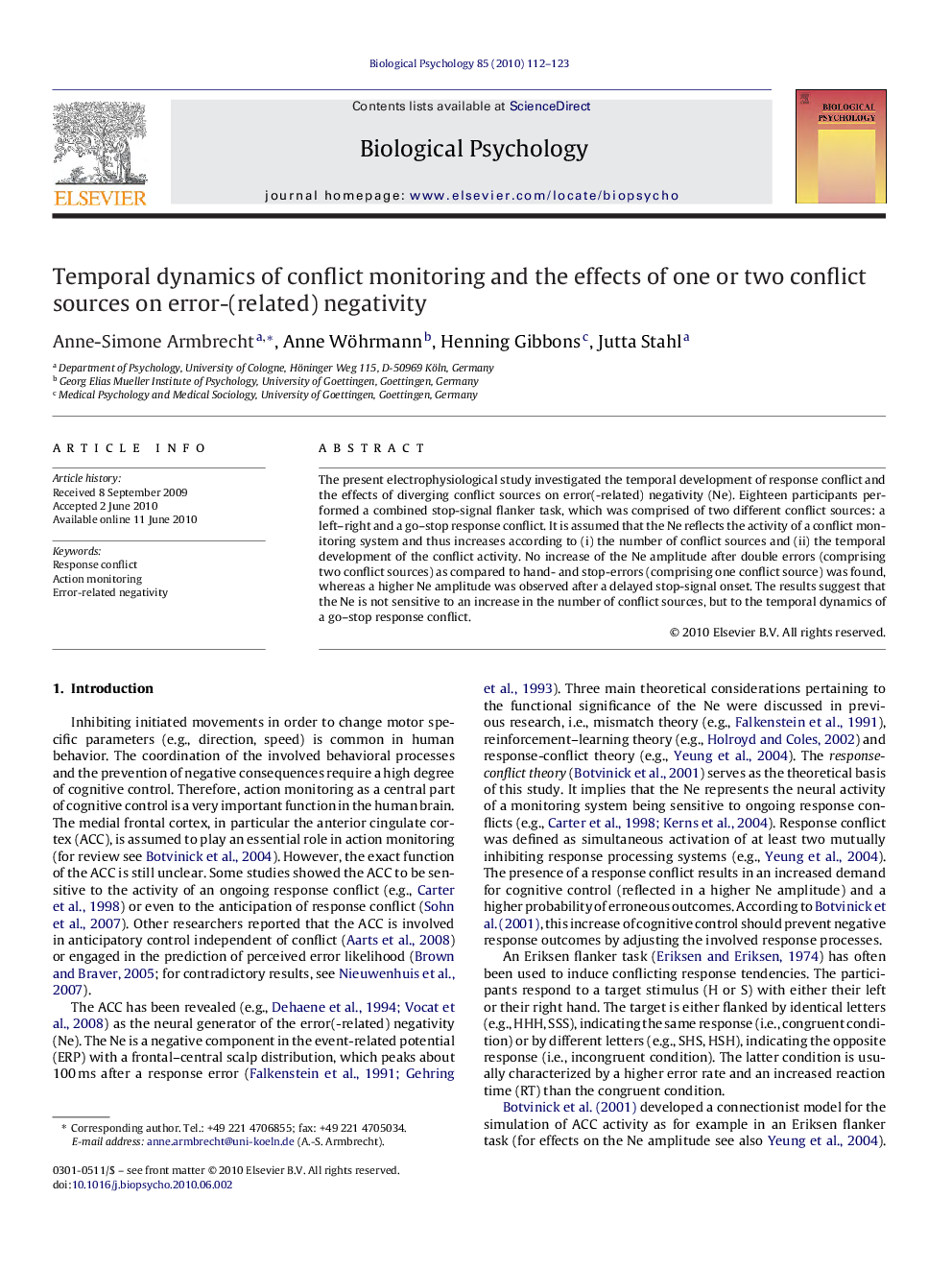| Article ID | Journal | Published Year | Pages | File Type |
|---|---|---|---|---|
| 10454393 | Biological Psychology | 2010 | 12 Pages |
Abstract
The present electrophysiological study investigated the temporal development of response conflict and the effects of diverging conflict sources on error(-related) negativity (Ne). Eighteen participants performed a combined stop-signal flanker task, which was comprised of two different conflict sources: a left-right and a go-stop response conflict. It is assumed that the Ne reflects the activity of a conflict monitoring system and thus increases according to (i) the number of conflict sources and (ii) the temporal development of the conflict activity. No increase of the Ne amplitude after double errors (comprising two conflict sources) as compared to hand- and stop-errors (comprising one conflict source) was found, whereas a higher Ne amplitude was observed after a delayed stop-signal onset. The results suggest that the Ne is not sensitive to an increase in the number of conflict sources, but to the temporal dynamics of a go-stop response conflict.
Related Topics
Life Sciences
Neuroscience
Behavioral Neuroscience
Authors
Anne-Simone Armbrecht, Anne Wöhrmann, Henning Gibbons, Jutta Stahl,
